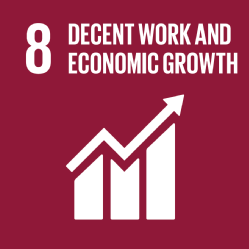Debt, Money, and Global Sustainable Development
 |
GD309 |
Dr Nick BernardsModule Leader |
Option - Second and Final Year Only |
Term 1 |
15 CATS |
| 5 Hours Lecture (pre-recorded, asynchronous) |
| 10 x 2 Hour Seminars |
|
Available to students from other departments by application |
Principal Aims
|
Debt, money, and financial markets are increasingly central to the prospects of and challenges for global sustainable development, both on a global scale and in terms of individual relations of poverty. This is reflected in the breadth of targets incorporated into the Sustainable Development Goals around access to financial services (e.g. 2.3; 5.A; 8.10; 9.3; 10.C), financial stability and integrity (e.g. 2.C; 10.5; 16.A, 17.4, 17.13). Financial markets, however, are often presented as a highly complex and technical subject best left to the ‘experts’. Even in the SDGs, finance is somewhat backgrounded even as its importance to achieving particular goals is recognised. The primary aim of this module, then, is to help de-mystify the roles that money, debt, and finance play in processes of sustainable development, and to invite students to reflect on these dynamics critically and from a multi-disciplinary perspective. The module emphasises the impacts of monetary and financial systems and relations of credit and indebtedness on the everyday lives of people in the global south and on possibilities for sustainable development. In doing so, the module seeks to help students develop nuanced and critical perspectives on the ways in which money and financial markets impact on poverty, poverty reduction, and development. |
Principal Learning Outcomes
|
By the end of the module, students should be able to 1) Understand, apply, and critique cross-disciplinary perspectives on debt, money, and finance, and their relation to sustainable development 2) Analyse the social, economic, and environmental impacts and implications of global finance 3) Engage critically in key contemporary debates about the role of money, debt, and finance in sustainable development 4) Develop an independent research project on a topic related to the module 5) Demonstrate writing and communication skills, particularly an ability to present research clearly and concisely |
Employability Skills
Through this module, you will develop a number of different skills that are sought by employers which will support your professional development. We have highlighted this to enable you to identify and reflect on the skills you have acquired and apply them throughout your professional journey including during the recruitment processes whether this on an CV/application form or at an interview.
- Research - one of the main assessments (critical policy analysis) is a research assignment requiring students to develop and conduct their own research question
- Written communication - both major assessments are written work and encourage students to develop writing skills, with a particular emphasis on clear and concise writing.
- Analytical: Awareness and critical analysis of policy issues relating to finance and sustainable development.
Syllabus
|
Week 1: Introduction Week 2: Navigating Hierarchy in the Global Financial System Week 3: Financial Crises Week 4: Greening Finance I: Green Bonds Week 5: Greening Finance II: ESG Investment Week 6: Reading Week Week 7: Financing Green Infrastructure Week 8: Climate Change, Disasters and Insurance Week 9: Debt, poverty and the climate crisis Week 10: Critical Policy Analysis Workshop |
Assessment
|
Mini-essays, 4x500 words - 50% Case Study Analysis, 2500 words - 50% |
Please note: Module availability and staffing may change year on year depending on availability and other operational factors. The School for Cross-faculty Studies makes no guarantee that any modules will be offered in a particular year, or that they will necessarily be taught by the staff listed on this page.
